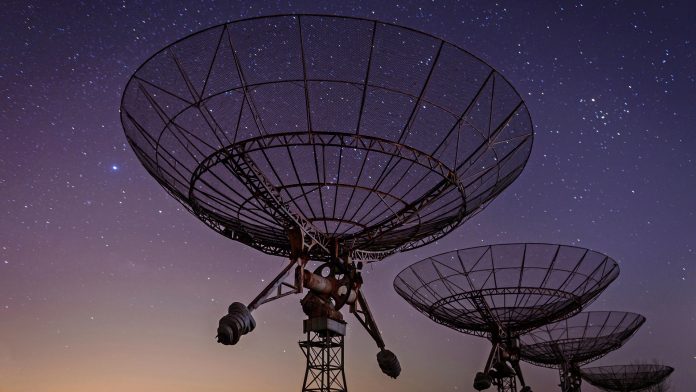A new £15 million fund to revolutionise satellite communications technology has been unveiled by the UK Space Agency.
Open to UK businesses, the funding is competition-based and aims to discover organisations developing ambitious technology across the satellite communications ecosystem. It will prioritise customer needs, support sustainable growth, and catalyse further investment into the UK space sector, which already employs 47,000 people.
Ideas from businesses can include creating entirely new satellite constellations, ground systems, and delivering new services to customers. The UK Space Agency will fund the programme through its leading role in the European Space Agency (ESA) Advanced Research in Telecommunications Services (ARTES) programme.
Negotiating further contributions for space projects
Ahead of the satellite communications funding, the UK Science Minister, Nusrat Ghani, has travelled to Italy to meet Josef Aschbacher, ESA Director General.
Following the meeting, the ESA Council of Ministers (CMIN22) will meet to negotiate their future contributions to ESA, with a focus on priority space projects and missions.
Ghani said: “I am proud to be representing the UK space sector, as we discuss our ambitions ahead of the ESA Council of Ministers next month. There are a series of important programmes on the table, and I want to harness opportunities in space to grow the economy, create jobs, and inspire young people into STEM careers.
“We are also making new funding available to strengthen the UK’s position as a world leader in the satellite communications market. I look forward to seeing the results of the competition.”
The UK is a world leader in scientific output
The £15m satellite communications fund comes in light of a new report, which shows that every pound invested in the ESA generates an overall return of £11.80 for the UK economy.
The report, titled ‘The Impact Evaluation of UK Investment in the European Space Agency’, also highlights that the UK is in the top three nations in terms of scientific output, along with the US and Germany. This is a measure of the publication rate per pound invested among key space-faring countries.
The UK’s close working relationship with the ESA is an important aspect of delivering on the Government’s ambitious National Space Strategy. In 2019, the UK committed £374m per year to the ESA over five years. The report details the impact of the investment in 2020 and 2021.
The ARTES programme is one of the UK Space Agency’s key commercial drivers for UK space sector growth, and includes projects such as Eurostar Neo. UK involvement in the programme – which is expected to bring a 20:1 return on investment – will see new geostationary satellites, developed by Airbus, launched into space to provide better broadcast, internet, and communication services around the world.
Dr Paul Bate, Chief Executive of the UK Space Agency, said: “Our ESA membership delivers huge advantages to the UK, by catalysing investment into the sector, backing innovative companies, and providing access to new missions and capabilities, such as the James Webb Space Telescope.
“As a founding member of the ESA, UK space organisations benefit from access to world-class facilities in the UK and Europe, the expertise of ESA’s 3,000 staff, and close links to the wider international space community, including NASA.”
He concluded: “This new report demonstrates how our participation in ESA translates into real results for the UK economy, and continues to play an important role in meeting our national space ambitions.”
The first phase of the satellite communications funding begins this month, with the agency calling to businesses for ideas. The competition will run until Spring 2023.








